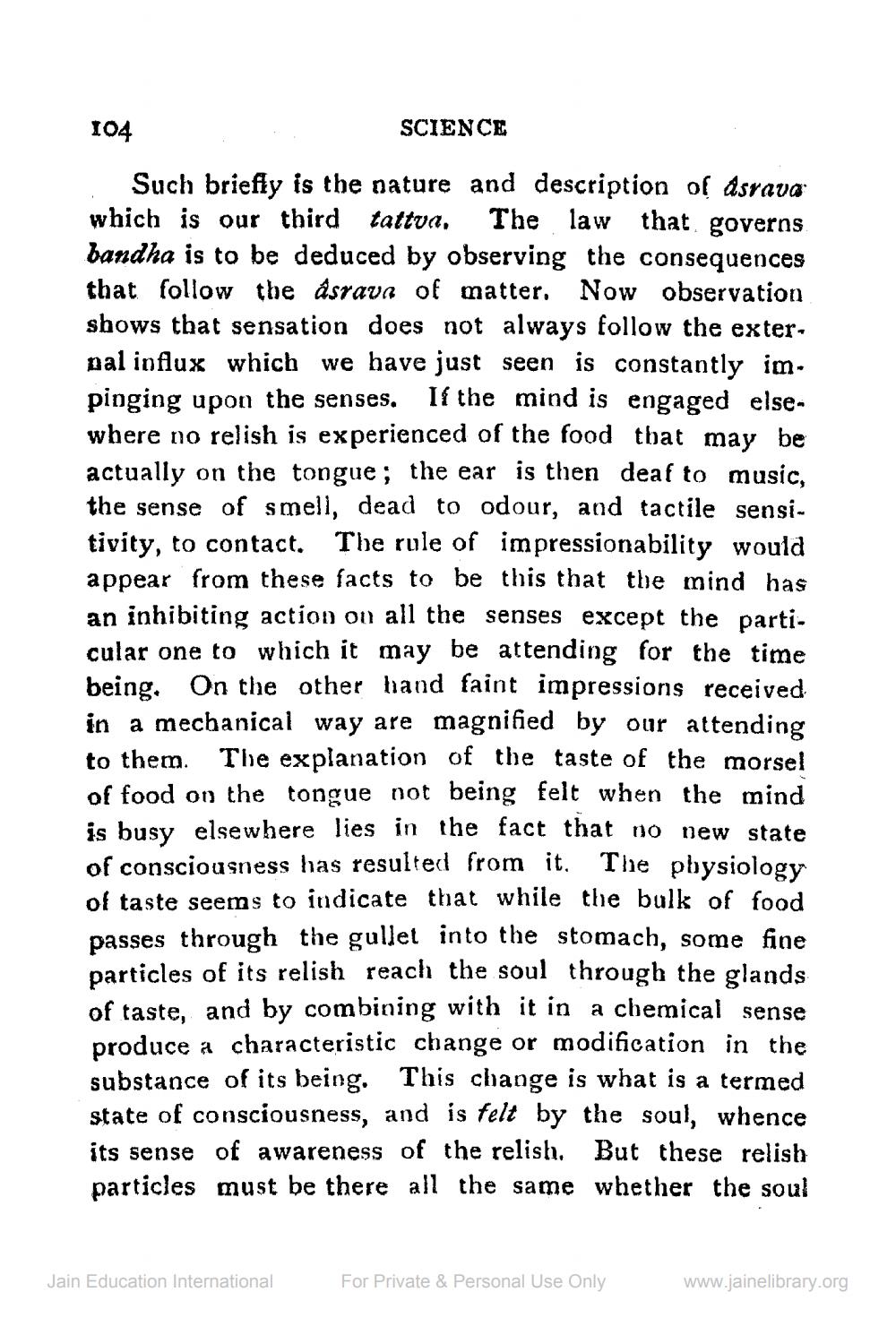________________
104
SCIENCE
Such briefly is the nature and description of asrava: which is our third tattva, The law that governs. bandha is to be deduced by observing the consequences that follow the asravn of matter. Now observation shows that sensation does not always follow the exterDal influx which we have just seen is constantly im. pinging upon the senses. If the mind is engaged elsewhere no relish is experienced of the food that may be actually on the tongue; the ear is then deaf to music, the sense of smell, dead to odour, and tactile sensitivity, to contact. The rule of impressionability would appear from these facts to be this that the mind has an inhibiting action ou all the senses except the particular one to which it may be attending for the time being. On the other hand faint impressions received in a mechanical way are magnified by our attending to them. The explanation of the taste of the morsel of food on the tongue not being felt when the mind is busy elsewhere lies in the fact that no new state of consciousness has resulted from it. The physiology of taste seems to indicate that while the bulk of food passes through the gullet into the stomach, some fine particles of its relish reach the soul through the glands of taste, and by combining with it in a chemical sense produce a characteristic change or modification in the substance of its being. This change is what is a termed state of consciousness, and is felt by the soul, whence its sense of awareness of the relish. But these relish particles must be there all the same whether the soul
Jain Education International
For Private & Personal Use Only
www.jainelibrary.org




